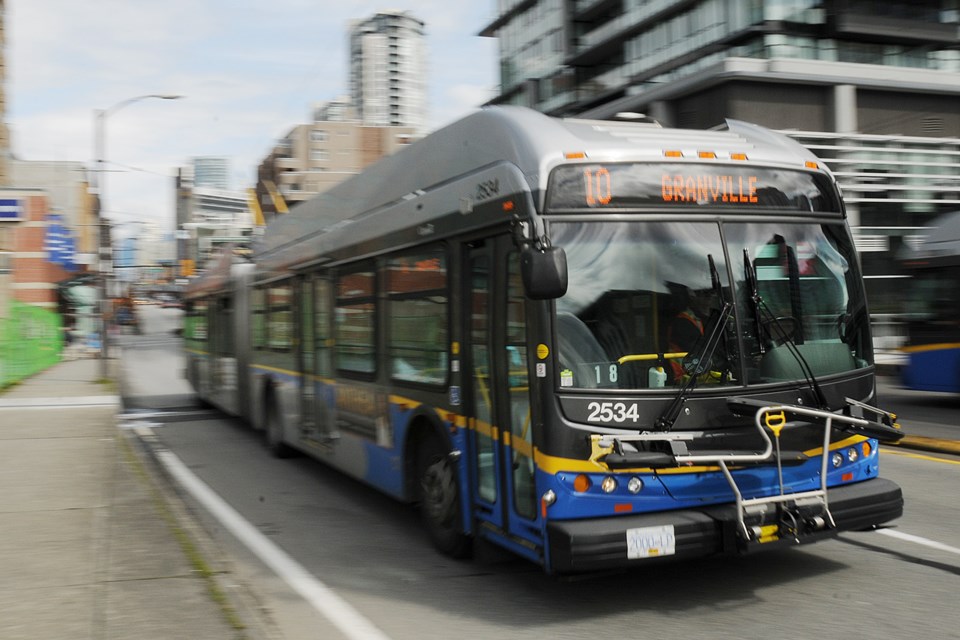Just over half of the Lower Mainland transit workers were “satisfied” with their jobs, according to a survey of hundreds of transit workers.
The survey noted many challenges such as “lack of trust among staff” and “management does not understand the front lines.”
The survey included 1,175 employees of the Coast Mountain Bus Company, a wholly-owned subsidiary of TransLink, done during the CAW/Unifor 111 union consolidated sign-up last summer. The Courier obtained the survey from TransLink using the freedom of information law.
CAW 111 union president Nathan Woods said he has had the survey report since December, but believes management asked him to keep it private because the results were embarrassing.
Some workers had positive comments. The transit system’s strengths included “sharing concerns, team support, job expectations.” Amongst the operational workers, the survey found pride of work, clarity of tasks and comfort in speaking up to supervisors.
About 53 per cent reported being satisfied with their job. In a section called Content Summaries, a litany of complaints was noted: “Stressful job; schedule is unrealistic; cutting running times; workload has increased; underfunded; need to support drivers’ safety.”
It continued on another page: “Staff layoffs, outsourcing; managers and TransLink staff do not understand us; we need respect; a direction for the future; [managers have] little contact with drivers and supervisors; policies are
contradictory.”
The results are seen as positive by management.
“We were pleasantly surprised by the 53 percent approval rating, and that’s in line with other public organizations,” Stan Sierpina, Coast Mountain’s vice-president of operations for the past 14 years, told the Courier. “We expected it to be worse, after all the cost-cutting moves we had to make. The most important finding is that we have to communicate better to employees.”
Woods said morale has steadily declined in the past few years, and the introduction of the Compass Card is likely to make it even worse, by keeping buses “continually in motion.” This means reducing the five minute recovery and washroom time at the end of the line so that operators might drive 180 minutes non-stop instead of 90, with their fatigue putting the public at risk, Wood said.
“We hear the drivers,” Sierpina added, “and will work to fix scheduling and recovery time.”
Woods said that when Haydn Acheson became Coast Mountain president in 2011, he visited each depot once for “coffee meetings” with a few drivers, but did not do so again, and the drivers felt their concerns were ignored.
On the drivers’ call for more safety, Sierpina said that since safety measures were introduced in 2008, assaults on drivers have dropped by half.
Woods scoffs at those numbers, saying that assaults rose by 15 per cent last year and are on track to rise again this year. He adds there are only 60 bus security staffers to cover a 1,800 square kilometre area, while transit police mainly focus on SkyTrain stations.
This is the first survey done of TransLink’s union workers, and Sierpina expects it to be a yearly event.
“This is a good benchmark,” he said. “It really helps us to understand what the workers want and it should improve relations.”
Woods is doubtful: “I’d bet you $10 the results of the next survey will be the same.”



